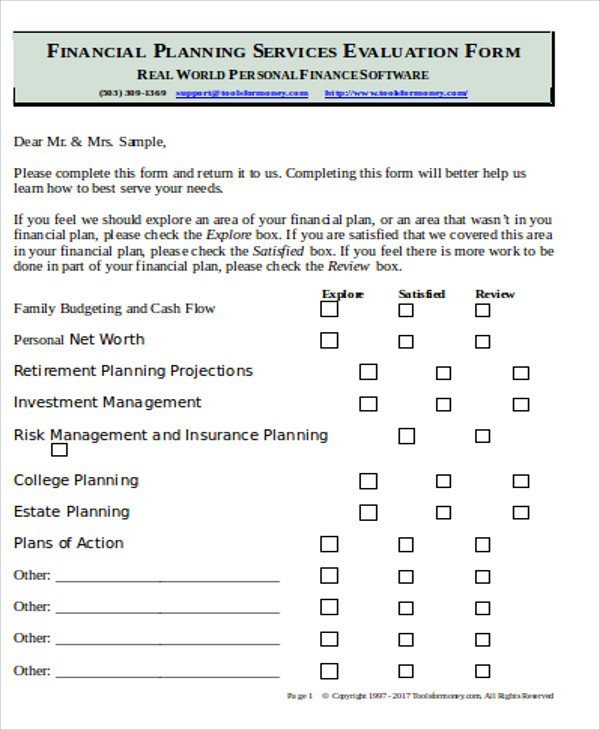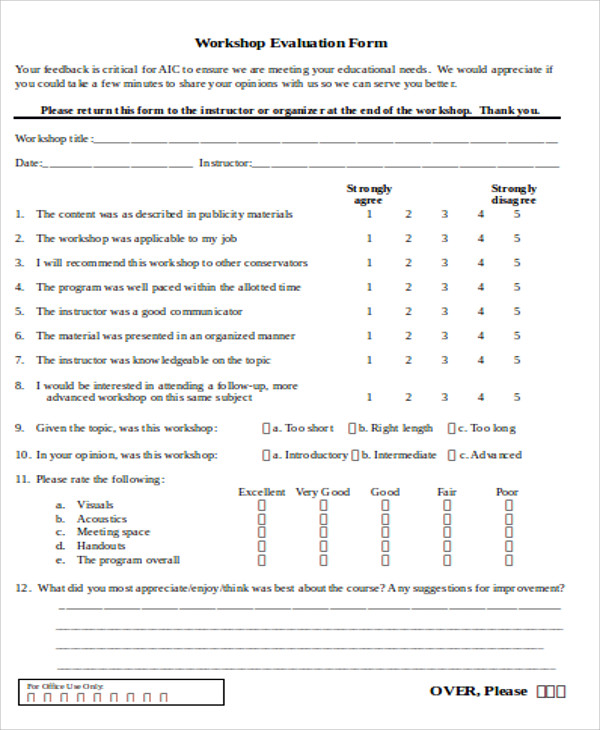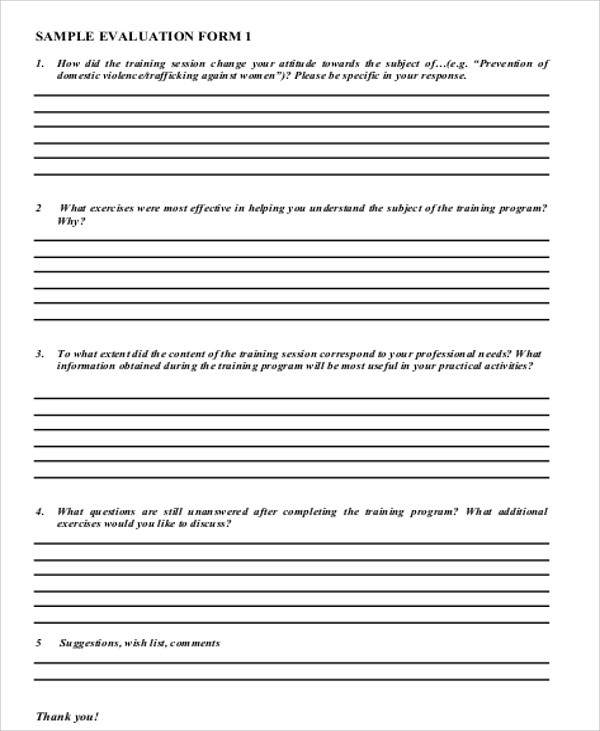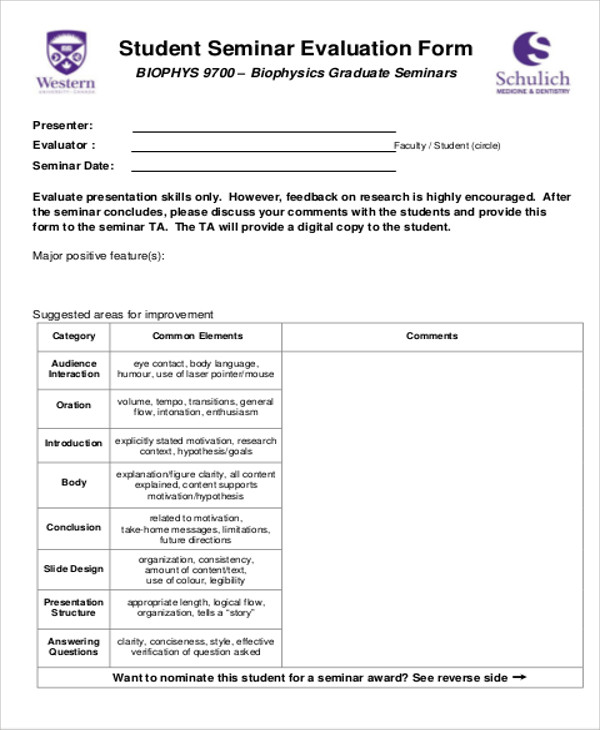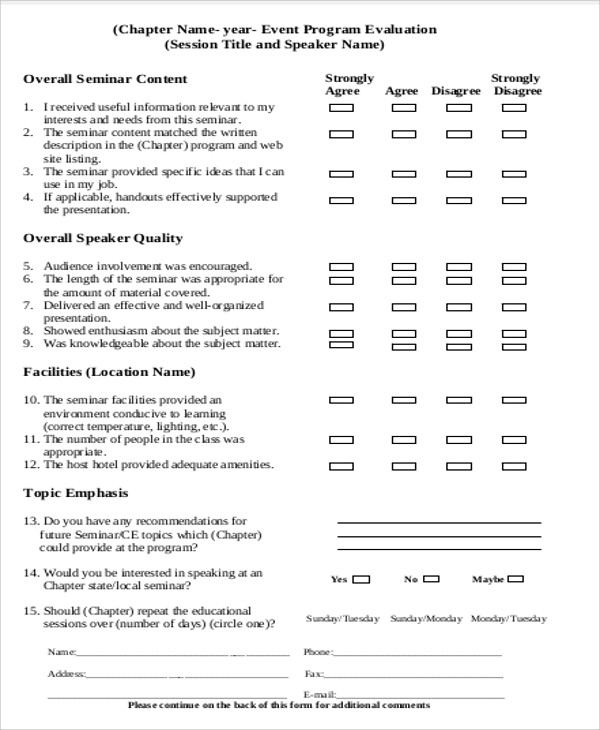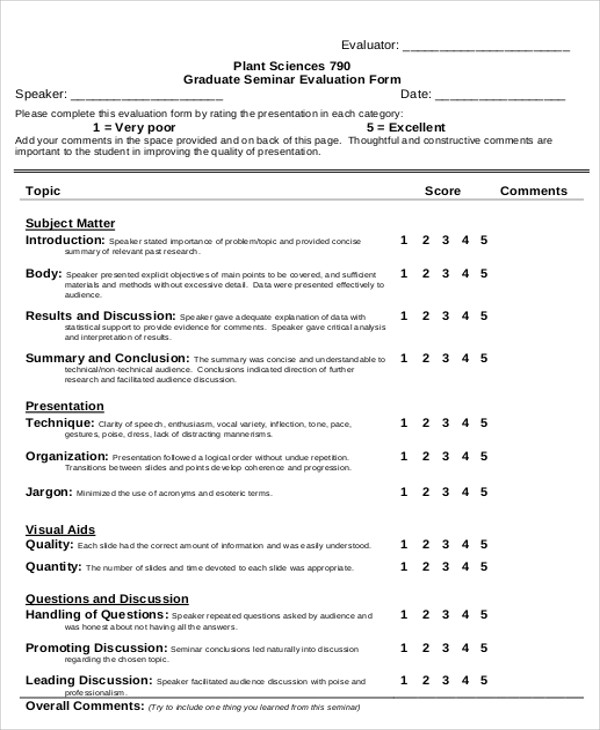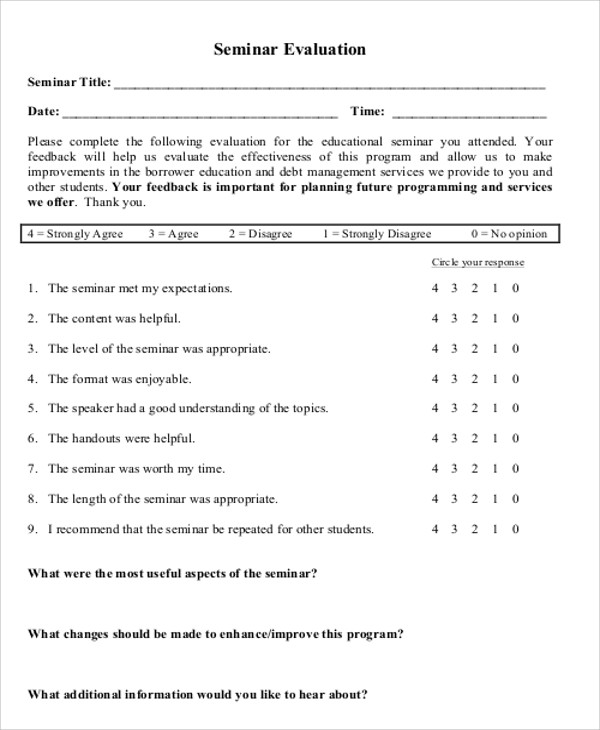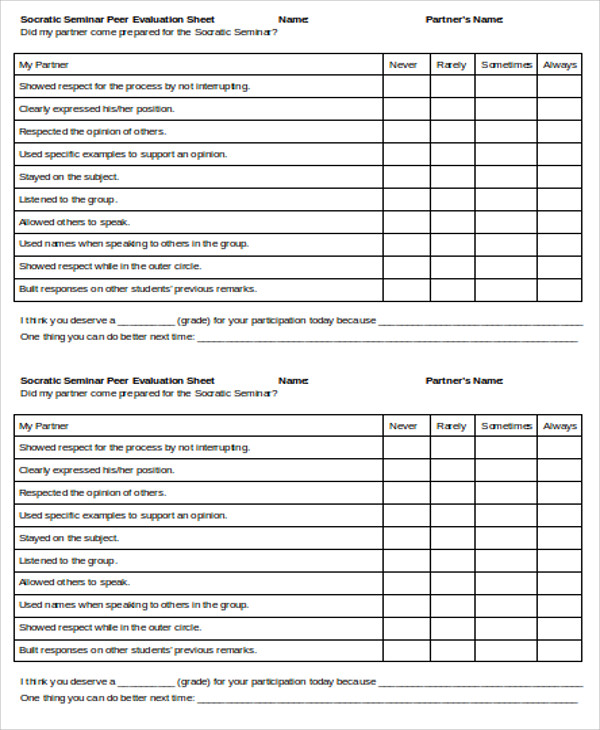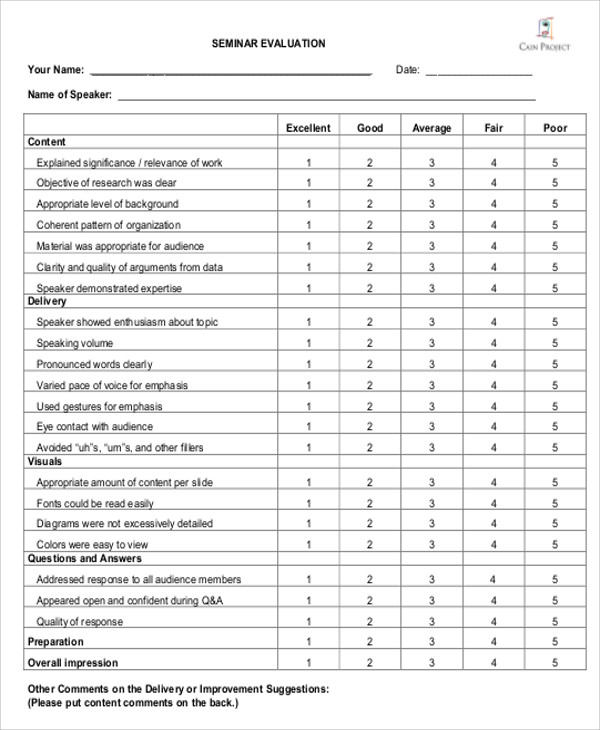Similar to how it is difficult to see the entire picture when your nose is pressed to a painting, there are people who lose the ability to consider alternate positions when they are too involved in a task. Some people, when they become too attached to a project, become micro managers. They watch every detail, hoard every decision, and refuse to let anyone else be involved in the matters of the project.
While being passionate about your work is not a bad thing, it is important to realize that domineering every aspect of a project means you risk losing valuable opinions and ideas that would probably never even occur to you. No matter how great you are at your work, it is important to keep in mind that the best ideas are a product of many good, or perhaps even mediocre, ideas.
This is exactly why it is important to have your work evaluated. Whether you’re the facilitator of the seminar or the organization sponsoring it, here are some Sample Forms you could use to assess its outcome.
Financial Seminar Evaluation Form
Seminar Workshop Evaluation Form
Training Seminar Evaluation Form in PDF
Student Seminar Evaluation Form
Workshops and Seminars
In order to design an appropriate evaluation form, you must first know whether your activity is a workshop or a seminar.
Workshops and seminars are terms mistakenly used interchangeably. While the two may seem to mean the same thing, there are some major distinctions that makes one obviously different from the other. These differences are the following:
Size
Workshops are composed of significantly less participants, usually about less than 25 at a time. A seminar, however, is conducted to about a hundred people or more at once.
Participation
Seminars are more lecture-driven with an open forum at the end to accommodate questions that participants may have. Workshops, on the other hand, are very interactive. Experiential learning is the teaching method often adopted by workshop facilitators where the participants perform activities related to the topic as they learn. Questions that participants may have are asked anytime and is sometimes turned into a group discussion.
Interaction
Seminars often involve individual thinking, working, processing, and note-taking. Sometimes, interaction between a couple of people who sit close by is possible. A workshop is its more interactive counterpart, with the participants moving around, talking to each other, and working together in a group.
Length
Seminars usually last a few hours, a whole day at most. Workshops can go on even longer, lasting a minimum of a day and a maximum of a week.
Before you begin to design your evaluation form, first figure out if you’re conducting a seminar or a workshop. See these Workshop Evaluation Forms if you’re conducting a workshop and see these Peer Evaluation Forms to use as a guide.
Seminar Speaker Evaluation Form
Technical Seminar Evaluation Form
Seminar Program Evaluation Form
Seminar Peer Evaluation Form
Sample Seminar Evaluation Form in PDF
Seminar Evaluation Forms
A seminar evaluation form would be significantly shorter than other evaluation forms. In these forms, you may ask your participants to evaluate the following:
- The venue. Ask your participants if the temperature of the environment and the seats are reasonably comfortable.
- Equipment. Have them evaluate the projectors, microphones, and the PowerPoint presentations.
- You. Let the participants tell you how well you did so you may determine points of improvement.
- The content. Having this evaluated lets you know whether or not the topics you covered are relevant to the participants.
For more types of evaluation forms, you might also want to check out Employee Self-Evaluation Forms.
Related Posts
Agreement Form Samples & Templates
Vehicle Inspection Forms Samples & Templates
Sample Employee Advance Forms
Sample Child Travel Consent Forms
Sample Testimonial Request Forms
Sample Employee Details Forms
Sample Divorce Forms
Sample Attestation Forms
Employee Performance Appraisal Form Templates
FREE 9+ Sample Presentation Evaluation Forms in MS Word
FREE 10+ School Admission Form Samples & Templates in MS Word | PDF
FREE 30+ Patient Consent Form Samples in PDF | MS Word
FREE 10+ Sample Sign Off Form Templates in PDF | MS Word
FREE 11+ Sample Medical Consultation Forms in PDF | MS Word
FREE 8+ Sample Donation Forms in PDF | MS Word
